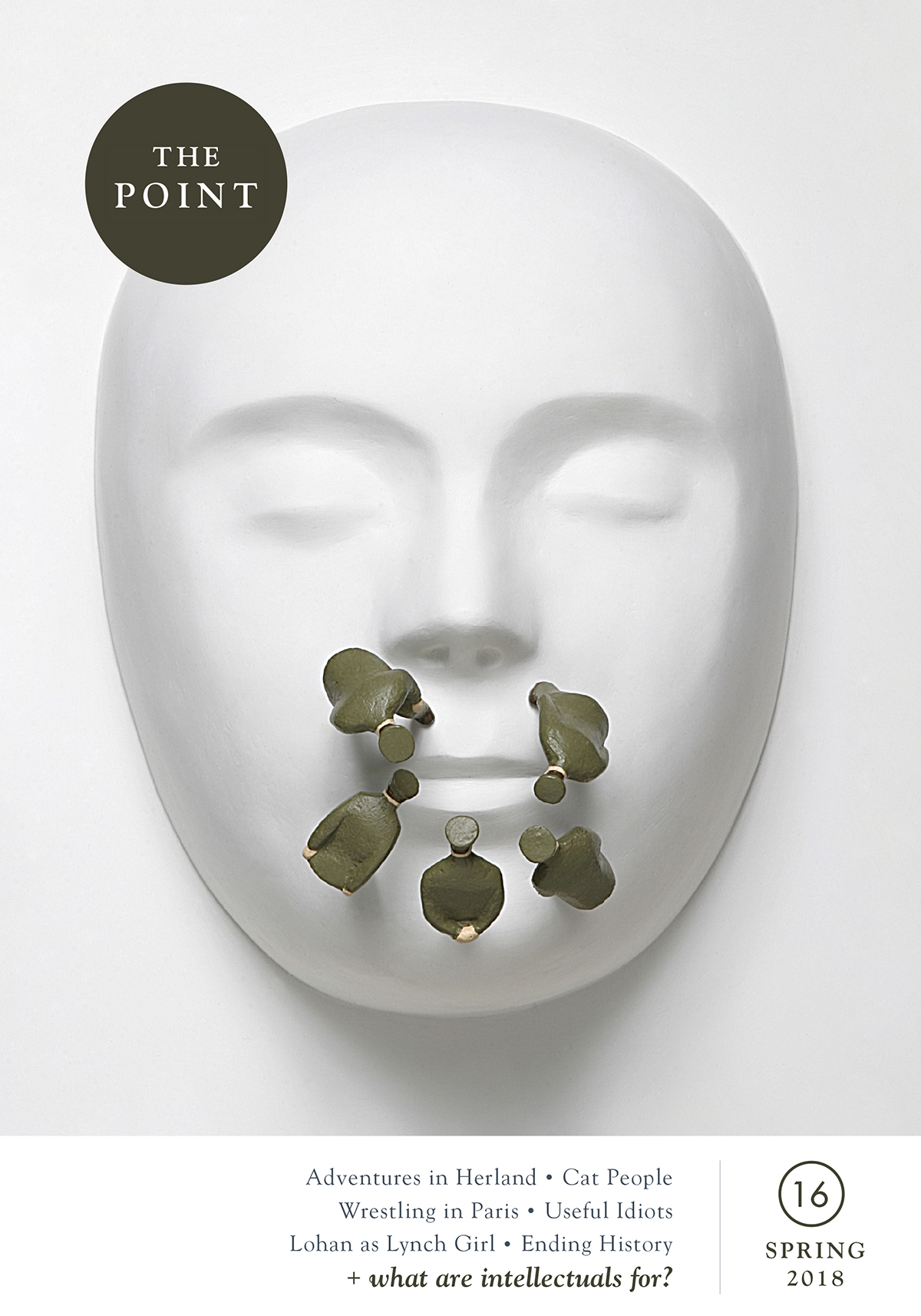The Point 16: What are intellectuals for?
by
multiple authors
(editors)
The Point 16: What are intellectuals for?
by
multiple authors
(editors)
Hansen argues that her lack of awareness about America’s role in the world was structural, intentional—an ignorance that many Americans, particularly white Americans, wear like mental armor, allowing them to believe, against all evidence, that our political and military interventions abroad are always necessary, successful and well-intentioned. “I would never have admitted it, or thought to say it,” Hansen explains, “but looking back, I know that deep in my consciousness I thought that America was at the end of some evolutionary spectrum of civilization, and everyone else was trying to catch up.” Hence, she assumed that in Istanbul, she would assess how well Turkey was meeting certain U.S. standards (“democratization,” “modernization”); she would also think about “solutions” to Islam, because “that’s what Americans always do.”
Hansen occasionally mentions The Fire Next Time (1963), in which Baldwin describes the willful, violent blindness of white Americans, and their determination not to face “reality—the fact that life is tragic.” Baldwin himself left America for France and Turkey because he found life there false and unbearable, a physical and psychological assault. At least African Americans, he wrote, possess “the great advantage of having never believed the collection of myths to which white Americans cling: that their ancestors were all freedom-loving heroes, that they were born in the greatest country the world has ever seen, or that Americans are invincible in battle and wise in peace.” Hansen read this passage long before moving to Turkey, but one of her points is how often we can know something but not really accept it. She writes: “Even when I disagreed with America’s policies, I always believed in our inherent goodness, in my own.”
From Istanbul, Hansen traveled to report from Greece, Egypt and Afghanistan, only to discover from wry, patient locals that the crisis each country is currently undergoing can be explained by a history in which U.S. intervention figures prominently. [...]

